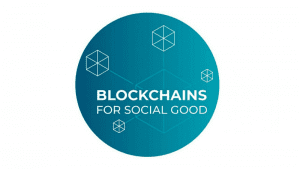

Marya Gabriel, Commissioner for Innovation Research, Culture, Education and Youth, commended the projects: “I warmly congratulate all the winners. The proposed solutions show how blockchain can create positive social change by supporting fair trade, increasing transparency in production processes and e-commerce and contributing to financial inclusion by exploring decentralised economic structures. I hope that this award can help upscale these outstanding ideas and inspire many other innovators.”
The EIC’s winners
The successful solutions – each of which will receive €1M – proposed blockchain applications for:
- fair trade and circular economy
- increasing transparency in production processes and quality information
- improving accountability
- contributing to financial inclusion
- renewable energy.
The winning applications came from:
- WordProof (quality content)
- PPP (traceability and fair trade)
- GMeRitS (financial inclusion)
- UnBlocked Cash Project OXBBU (aid and philanthropy)
- CKH2020 (decentralised circular economy)
- PROSUME (energy).
WordProof
Dutch SME, WordProof BV, has developed the WordProof Timestamp Ecosystem. Proposed as a free browser plugin, this is a technology able to:
- prove authenticity
- make information verifiable.
The result is to lead to more trust in internet content. With the timestamps:
- content owners can show they did not tamper with their content
- the history of changes becomes verifiable for both humans and machines.
PPP
UK social enterprise Project Provenance Ltd developed Proof Points. It enables businesses to prove their social impact across the supply chains which lie behind their business and products.
GMeRitS
Finnish university Aalto is conducting wide-scale experiments with alternative economic structures. The objective is to try and evaluate various anti-rival compensation and governance structures, thereby contributing to financial inclusion.
OXBBU
The UnBlocked Cash Project OXBBU (from Irish Oxfam and French startup Sempo) pioneers a decentralised model which addresses the global challenge of delivering international aid to disaster-affected women and men in ways that are efficient, transparent and sustainable.
CKH2020
From French cooperative, Kleros has created CKH2020, a platform for resolving consumer disputes in an eCommerce or collaborative economy. Blockchain guarantees that:
- no party can tamper with the evidence nor manipulate jury selection
- rulings are automatically enforced by smart contracts.
PROSUME
Italian Prosume Srl has created Prosume. It is a DLT-based platform providing a decentralised and autonomous digital marketplace for peer-to-peer energy trading. Its goal is to integrate prosumers – consumers who are also producers of renewable energy – in the (thus far) highly monopolised fossils-based energy sector.
6, not 5, and open source
The original intention was to award five prizes. As shown above, the list indicates six winning applications. This is because the last two applications finished ex-aequo, and the Jury recommended funding both of them (by splitting the 5th Prize equally).
One of the requirements of the Prize was to submit solutions developed in open source. This idea is this requirement will enable more innovators to benefit from the advanced technological solutions developed by the prize winners and the other participants in the Prize.

Thierry Breton, Commissioner for the Internal Market, noted: “Participation from 43 countries in the Prize on Blockchains for Social Good has shown us the potential to address local and global challenges with blockchain technology that offers decentralised, trusted and transparent solutions.
“Europe has to fully recognise and support European technological innovations to address both industrial and sustainability challenges.”
Applying for a prize
The call for the Prize opened on 16 May 2018 and closed on 3 September 2019. 176 applications were received from 43 countries (19 of which were outside the EU). They pretty much (according to the EIC) addressed the six areas indicated in the call. There were 13 additional areas proposed by the applicants themselves (as allowed by the Rules of Contest).
In terms of the categories of applicants
- 10% of the proposals originated from individuals
- 10% from public institutions (mostly universities, but also Red Cross, Oxfam, foundations)
- almost 80% from start-ups and SMEs.
The evaluation was organised in two steps. Following a pre-selection in November 2019, the 23 best applications were invited to a final hearing with the Jury on 10 February 2020. In parallel to the hearing, the 23 finalists were invited to present and discuss their solutions at a public workshop: this attracted more than 170 participants. The event sought to:
- give public visibility not only to the Prize winners but also to all finalist applications
- generate further community discussion on the potential of blockchains to support social innovation.
Enterprise Times: what does this mean
The revolutionary potential for blockchain exists in the financial domain. It’s possible that applications in social domains, and to address sustainability challenges, have been far less explored. The EIC sees the results as important for the development of the Next Generation Internet (NGI) initiative. It continues to explore the potential of blockchain in new application areas, in particular, to address local and global sustainability challenges relating to the SDGs.
A point to note: nearly half of the areas covered by the selected applications (quality content, aid and philanthropy, energy and health) relate to the UN’s Sustainable Development Goals (SDGs).
Perhaps even more important, the EU’s Commission innovation initiatives are ‘famed’ for their ability to focus on a small number of large enterprises/institutions. The EIC demonstrates the opposite, as the 80% of proposals from start-ups and SMEs evidence. This is a welcome development. Long may it continue.

























